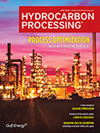UN-led talks weigh goal to reduce aviation emissions
A United Nations-led conference wrapping up in Dubai on Friday is weighing goals to reduce carbon emissions from international aviation through less polluting fuel, as a rebound in traffic thrusts airlines into the hot seat over the environment.
Airlines are under pressure to lower emissions from flights after countries at an International Civil Aviation Organization (ICAO) assembly joined industry last year to target net-zero emissions from the sector by 2050.
ICAO's third Conference on Aviation and Alternative Fuels (CAAF) runs this week ahead of the COP28 U.N. climate summit in Dubai, which starts on Nov. 30.
CAAF delegates from more than 100 countries are debating ways to boost supply of sustainable aviation fuel (SAF) made from materials like used cooking oil. SAF is key to lowering emissions from aviation, but remains costly and in short supply.
Major airlines and planemakers want the Dubai gathering to set a global goal of achieving around an 80% reduction in aviation fuel carbon intensity from the use of SAF in 2050, compared with traditional fossil fuels.
Such a pledge would "show how aviation can get things done and be an important signal to the COP28 meeting taking place just down the road starting next week," Haldane Dodd, executive director of the industry Air Transport Action Group (ATAG), told participants on Thursday.
Environmental groups have urged CAAF to prioritize "high standards of environmental and social integrity."
While not binding, such global commitments hold moral suasion and could encourage critical investments needed to ramp up SAF production, which now amounts to less than 1% of total jet fuel.
Industry estimates it will take between $1.45 trillion and $3.2 trillion in financing for SAF capital development to achieve the sector's net zero emissions goal.
Making access to financing more readily available to developing countries, another conference goal, is needed to bolster SAF production outside of the United States and Europe.
Francis Mwangi, senior planning officer at Kenya's Civil Aviation Authority, said the African country needs financing to study the economic benefits of domestic SAF production and for using an old Mombasa-based refinery to produce the fuel.
"We are ready to move and produce SAF in Kenya," Mwangi said.






Comments